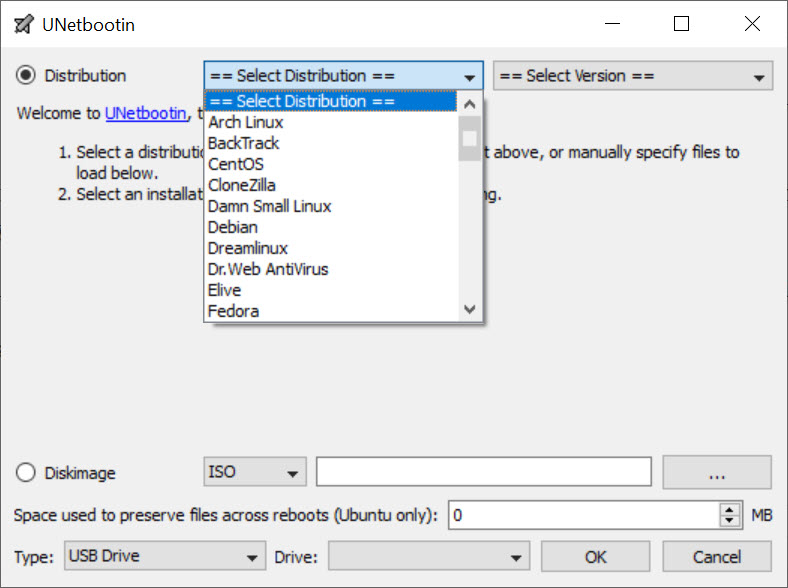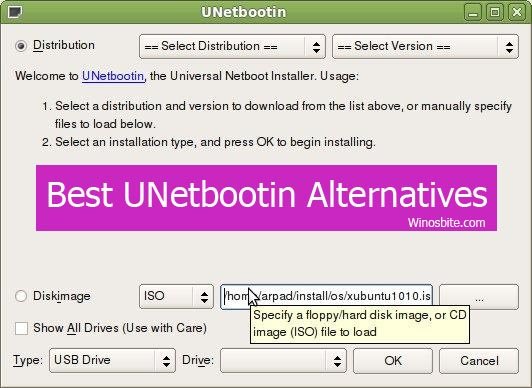

- #Unetbootin for windows 7 64 bit 64 Bit#
- #Unetbootin for windows 7 64 bit update#
- #Unetbootin for windows 7 64 bit software#
- #Unetbootin for windows 7 64 bit license#
- #Unetbootin for windows 7 64 bit iso#
#Unetbootin for windows 7 64 bit software#
The main reason is that I feel that the donation system doesn't actually help software development and worse, can be guilt-inducing for users who choose not to donate.

Since I'm getting asked about this on regular basis, there is no donation button on this page. If you are a developer, you are very much encouraged to tinker with Rufus and submit patches.
For more information, see the github project. Alternatively, you can clone the git repository using: $ git clone git:///pbatard/rufus. Add Windows 11 "Extended" installation support (Disables TPM/Secure Boot). Fix removal of some boot entries for Ubuntu derivatives. Fix BIOS boot support for Arch derivatives. #Unetbootin for windows 7 64 bit iso#
Fix ISO mode support for Red Hat 8.2+ and derivatives. #Unetbootin for windows 7 64 bit update#
Update UEFI:NTFS to latest and remove Secure Boot notice since this version is Secure Boot signed. Improve ReFS handling for platforms that support it. Fix commandline hogger not being deleted on exit. Rufus is produced in a 100% transparent manner, from its public source, using a MinGW32 environment. You are free to distribute, modify or even sell the software, insofar as you respect the GPLv3 license. #Unetbootin for windows 7 64 bit license#
GNU General Public License (GPL) version 3 or later. To provide feedback, report a bug or request an enhancement, please use the github issue tracker. Notes on ISO Support:Īll versions of Rufus since v1.1.0 allow the creation of a bootable USB from an ISO image (.iso).Ĭreating an ISO image from a physical disc or from a set of files is very easy to do however, through the use of a CD burning application, such as the freely available InfraRecorder or CDBurnerXP. In that case, FreeDOS, which is the default selection, is recommended over MS-DOS, as it supports more keyboard layouts. If you create a DOS bootable drive and use a non-US keyboard, Rufus will attempt to select a keyboard layout according to the locale of your system.
"Pete Batard - Open Source Developer" (v1.2.0 or earlier). The executable is digitally signed and the signature should state: If you find that you can use Rufus in your own language, you should really thank them! Usageĭownload the executable and run it – no installation is necessary. I will take this opportunity to express my gratitude to the translators who made it possible for Rufus, as well as this webpage, to be translated in various languages. Once downloaded, the application is ready to use. #Unetbootin for windows 7 64 bit 64 Bit#
Windows 7 or later, 32 or 64 bit doesn't matter. (1)Ī non exhaustive list of Rufus supported ISOs is also provided at the bottom of this page. It is also marginally faster on the creation of Linux bootable USB from ISOs. For instance it's about twice as fast as UNetbootin, Universal USB Installer or Windows 7 USB download tool, on the creation of a Windows 7 USB installation drive from an ISO.
you need to flash a BIOS or other firmware from DOSĭespite its small size, Rufus provides everything you need!. you need to work on a system that doesn't have an OS installed. you need to create USB installation media from bootable ISOs (Windows, Linux, UEFI, etc.). It can be especially useful for cases where: If you're at all interested in Linux then UNetbootin is well worth a look.Rufus is a utility that helps format and create bootable USB flash drives, such as USB keys/pendrives, memory sticks, etc. You can leave the program to work, and once it's finished you should be able to launch your chosen Linux variant just by booting from that USB key. It has built-in support for downloading some of the most popular Linux distributions, for instance: Ubuntu, Debian, Linux Mint, openSUSE, Arch Linux, Damn Small Linux, SliTaz, Puppy Linux, gNewSense, FreeBSD, NetBSD, Fedora, PCLinuxOS, Sabayon Linux, Gentoo, MEPIS, Zenwalk, Slax, Dreamlinux, Elive, CentOS, Mandriva, FaunOS, Frugalware Linux, and xPUD.Īnd if you need more, the program also supports downloading many Linux-based system tools, including partition repair utilities, disaster recovery discs and antivirus tools.Īll you have to do is choose the image you need, and UNetbootin handle everything else: downloading the package, unpacking it, copying the files to the USB drive that you specify, and adding a boot loader. UNetbootin makes the whole process very much quicker, though, at least in theory. Once that's burned then your system should boot, but slowly. You'll need to locate the image first, for instance, then you'll have to find a spare disc to hold it. If you want to try out a Linux distribution then you could just download and boot from the appropriate LiveCD - but that's not always convenient.






 0 kommentar(er)
0 kommentar(er)
